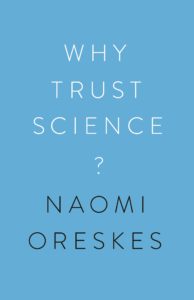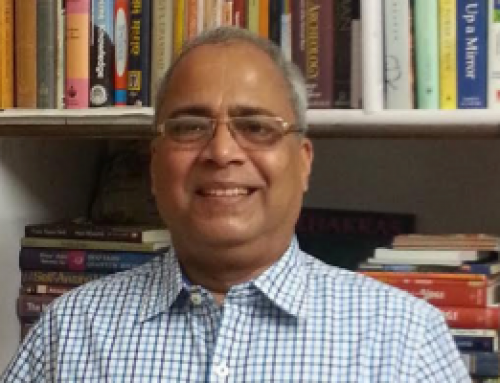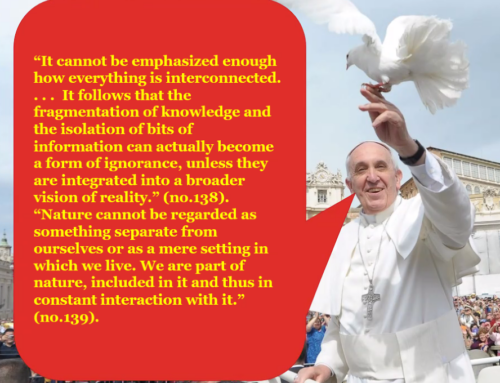 Members may know that Adviser Prof Etzel Cardeña published a landmark article on the experimental evidence for parapsychology in The American Psychologist.
Members may know that Adviser Prof Etzel Cardeña published a landmark article on the experimental evidence for parapsychology in The American Psychologist.The editors subsequently chose to print a so-called rebuttal by sceptics Arthur Reber and James Alcock entitled Searching for the Impossible: Parapsychology’s Elusive Quest. The fact that this article was not thrown out by peer review is significant since their argument is based entirely on a questionable philosophical presupposition, as they themselves state:
Our position is straightforward. Claims made by parapsychologists cannot be true. The effects reported can have no ontological status; the data have no existential value.
The editor then refused to publish Etzel’s riposte on the basis (ironically) that the said paper was not a rebuttal! So readers might get the impression that the matter has been (safely) put to rest. However, the new open-access Journal of Scientific Exploration Winter 2019 contains Etzel’s response and other commentaries by Bryan Williams, Andrew Westcombe, George Williams and Bernard Carr.
In his abstract, Etzel writes:
After presenting some background information, this Commentary discusses how: 1) Reber and Alcock’s disregard for the data goes against a core tenet of science, 2) eminent physicists have not considered psi phenomena to be incompatible with their discipline and some have even proposed theories to explain it, so no definitive conclusion can be advanced with regard to the possibility or impossibility of psi phenomena based on physics, and 3) Reber and Alcock misrepresent the history and current status of psi research.
SPR President and Adviser Prof. Chris Roe also published a comment in Paranormal Review.
 A more general point is that readers of American Psychologist unfamiliar with the field may be left with the impression that Reber and Alcock have had the last word, and that the matter is settled. However, there is an important general point to be made here. I recently reviewed a new book by Naomi Oreskes entitled Why Trust Science?. Her basic answer to the question posed by the title is that science is fundamentally collective and consensual with rigorous processes of vetting and peer review within various scientific communities whereby ‘in diversity there is epistemic strength’ warranting the placing of informed trust.
A more general point is that readers of American Psychologist unfamiliar with the field may be left with the impression that Reber and Alcock have had the last word, and that the matter is settled. However, there is an important general point to be made here. I recently reviewed a new book by Naomi Oreskes entitled Why Trust Science?. Her basic answer to the question posed by the title is that science is fundamentally collective and consensual with rigorous processes of vetting and peer review within various scientific communities whereby ‘in diversity there is epistemic strength’ warranting the placing of informed trust.Later in the book, Marc Lange notes in his contribution that the circularity in science is its attempt to vindicate itself, as it necessarily rests on certain philosophical assumptions, including ideas of what is possible and impossible. One of the ‘impossibilities’ for a science, based on strict materialism is the existence of psi, and Jon Krosnick comments on the firestorm generated by the publication of Daryl Bem’s paper on pre-sponse  (precognition) because ‘the results seemed implausible from the start and could not be reproduced.’ (p. 203) Implausibility is, in fact, a function of a priori assumptions rather than a scientific category. I received an email from Adviser Dean Radin on this issue saying that Bem had, in fact, produced a meta-analysis covering 90 replications of his experiment:
(precognition) because ‘the results seemed implausible from the start and could not be reproduced.’ (p. 203) Implausibility is, in fact, a function of a priori assumptions rather than a scientific category. I received an email from Adviser Dean Radin on this issue saying that Bem had, in fact, produced a meta-analysis covering 90 replications of his experiment:
Overall the meta-analysis clearly shows that what Bem reported is independently repeatable, and thus it meets the gold standard for what is considered “real” in science. Bem told me that he submitted that meta-analysis to every journal that he had regularly published in over his 50-year academic career, and not one of those journals would accept it. The woo-woo-taboo is so strong in academia that it is virtually impossible for an editor of a top-tier journal to publish an article with positive psi results. By contrast, articles reporting null results in psi experiments are easily published. Paradigms die hard.
Commenting on this example by Krosnick, Naomi Oreskes maintains that the firestorm illustrates science working as it should, given that a paper was published that made a “strong, surprising, and implausible claim. Immediately it received tough critical scrutiny, and the psychology community rejected it…the fact that it was published in the first place is evidence that the scientific community has remained open, even to ideas that some of us think should be closed down.” (p. 231) This is exactly the point – Bem was closed down and of course the author did not know about the replications of the study and the impossibility of publishing results in a respected journal.
I presented the Galileo Report at SAND Italy in July – those interested in seeing the related interview Who’s not looking through the telescope now?

Chair, Galileo Commission

